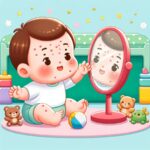When embarking on the journey of pregnancy, we often talk about the do’s and don’ts regarding diet, exercise, and overall health. However, one topic that deserves equal attention is pregnancy skincare ingredients to avoid. Navigating the world of beauty products and skincare routines can become a bit of a puzzle during pregnancy. It’s not just about what’s beneficial but also about sidestepping what could potentially harm you or your baby.
Why Should You Be Cautious About Skincare Ingredients During Pregnancy?
Pregnancy is a time when your body undergoes numerous changes, and your skin is no exception. Hormonal fluctuations can lead to a variety of skin concerns, from acne and hyperpigmentation to increased sensitivity. While the instinct might be to tackle these issues head-on with a plethora of skincare products, caution is key. Certain ingredients in skincare products can penetrate the skin and enter the bloodstream, potentially reaching the fetus. This is why identifying pregnancy skincare ingredients to avoid becomes paramount.
Let me share a personal anecdote. Early in my first pregnancy, I was blissfully unaware of the skincare products I used until my midwife highlighted the importance of scrutinizing product labels. This conversation was a turning point, prompting me to dive deep into understanding which ingredients were safe and which weren’t. It was not just about my wellbeing but the health of my growing baby.
What Are the Pregnancy Skincare Ingredients to Avoid?
The list of ingredients to steer clear of during pregnancy is extensive, but focusing on the most commonly discussed ones can provide a solid starting point. Here are a few key offenders:
- Retinoids (Vitamin A derivatives): Known for their anti-aging properties, these are often found in acne and wrinkle treatments. However, high doses of Vitamin A can be harmful during pregnancy, leading experts to advise against their use.
- Hydroquinone: Often used for skin lightening, hydroquinone’s high absorption rate (up to 45%) raises concerns about its safety during pregnancy.
- Salicylic acid: A common acne treatment, high doses of salicylic acid (such as in peels) are not recommended due to potential risks.
- Chemical sunscreens: Ingredients like oxybenzone can disrupt hormones and should be replaced with physical sunscreens containing zinc oxide or titanium dioxide.
- Phthalates: Found in many fragranced products, phthalates can affect the development of the male fetus.
- Formaldehyde: Present in some nail polishes and hair straightening treatments, formaldehyde is a known carcinogen and should be avoided.
For a comprehensive list and understanding of harmful ingredients during pregnancy, this WebMD article offers valuable insights.
How Can You Maintain a Healthy Skincare Routine While Pregnant?
Maintaining a healthy pregnancy skincare routine doesn’t mean you have to give up on all your skincare products. It’s about making informed choices. Opt for products labeled as pregnancy-safe and aim for those with a minimal ingredient list. Natural and organic products can be a good alternative, but remember, ‘natural’ doesn’t always mean safe, so it’s important to still check the ingredients.
During my pregnancies, I found solace in simple routines that emphasized hydration and gentle care. Switching to a mild cleanser, using a quality moisturizer, and not forgetting the importance of sunscreen (mineral-based) were key steps in my daily regimen. Remember, your skin might be more sensitive during pregnancy, so patch testing new products becomes even more crucial.
Are There Safe Alternatives to Common Harmful Skincare Ingredients?
Fortunately, for every skincare ingredient to avoid during pregnancy, there’s often a safe alternative. Instead of retinoids, consider products with vitamin C for anti-aging and brightening. Swap out chemical exfoliants like salicylic acid for gentle enzymatic exfoliants or lactic acid, which is considered safe in low concentrations. And instead of chemical sunscreens, look for physical sunscreens with zinc oxide or titanium dioxide.
Exploring natural oils can also be rewarding. For example, rosehip oil is a wonderful alternative for hydration and can help with hyperpigmentation. Almond oil is great for sensitive skin, and coconut oil can be used for extra moisture. However, always patch test before applying anything new to your entire face or body.
Key Takeaways for a Safe Pregnancy Skincare Routine
In summary, navigating pregnancy skincare requires a bit of research and a lot of label-reading, but it’s absolutely possible to maintain a healthy glow safely. Avoiding harmful ingredients is crucial, not just for your own health but for the wellbeing of your baby. Remember, when in doubt, consult with a healthcare professional or a dermatologist who can provide guidance tailored to your specific situation.
At the end of the day, pregnancy is a beautiful journey, and taking care of your skin is just one part of preparing for your new arrival. Embrace this time of change with confidence, knowing you’re making the best choices for you and your baby.
For more tips on pregnancy and baby care, explore related articles on our site, such as How to Practice Gentle Parenting from Birth, What is Attachment Parenting for Expectant Parents, and Benefits of Baby-led Weaning for New Parents.













